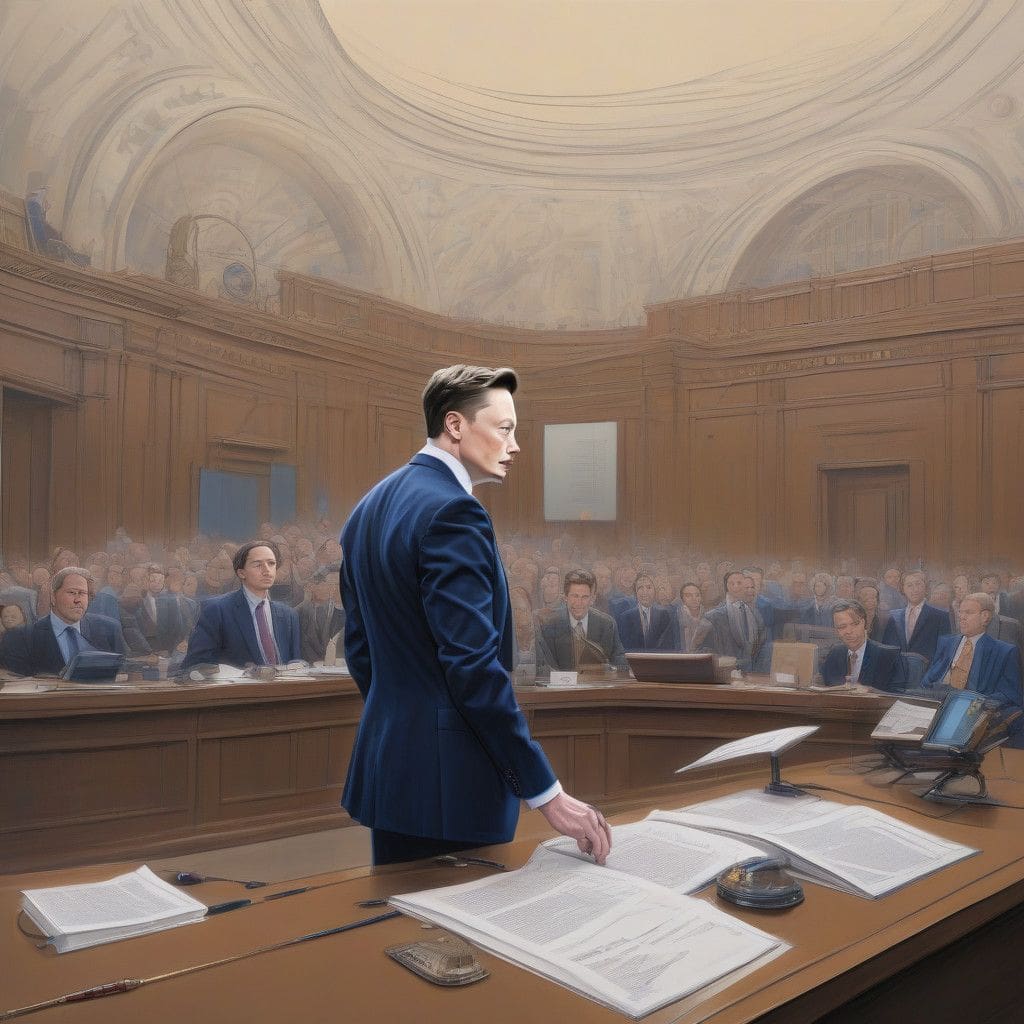In a striking move that has sent shockwaves through the tech industry, Elon Musk has intensified his legal battle against OpenAI by adding Microsoft to his lawsuit. This bold step raises significant questions about competition in the burgeoning field of generative artificial intelligence (AI). The lawsuit, filed in Oakland, California, accuses both companies of engaging in illegal practices designed to monopolize the generative AI market, a sector that is rapidly becoming the backbone of innovation in various industries.
The crux of Musk’s argument centers around the partnership between OpenAI and its largest investor, Microsoft. He contends that this collaboration has marginalised other competitors and restricted investment opportunities for alternative AI developers. Concerningly, Musk claims that the partnership gives both corporations an undue advantage, thereby squeezing out smaller entities that could otherwise contribute to a more balanced competitive landscape.
Musk’s lawsuit builds on a prior complaint he lodged against OpenAI in August, which claimed the organization he co-founded has fundamentally strayed from its original mission. Initially established with the goal to promote safe and beneficial AI development, Musk argues that OpenAI has transformed into a profit-oriented enterprise, currently valued at an astonishing $157 billion. This transformation raises the question of whether the initial ideals that guided the organization’s formation have been forsaken in favor of financial gain.
A key demand in Musk’s lawsuit is the annulment of the licensing agreement between Microsoft and OpenAI, which Musk claims violates antitrust laws. He calls for a divestiture of the assets acquired through what he labels monopolistic practices. The lawsuit also asserts that the two companies have circumvented conventional regulatory scrutiny by creating exclusive agreements that are perceived to resemble a merger, but without following the standard antitrust review processes.
OpenAI has swiftly dismissed Musk’s claims as baseless, arguing that the partnership with Microsoft contributes positively to advancing AI technologies. They emphasize the importance of collaboration in the field, which, by its nature, is driven by the exchange of ideas and resources among various players. OpenAI contends that competition in AI remains vigorous and is critical for fostering innovation.
Musk’s ongoing tensions with OpenAI reflect deeper issues regarding the concentration of power in the tech industry. Following his exit from the organization, Musk has been increasingly vocal about his concerns surrounding the potential risks posed by AI unfettered by ethical considerations and adequate oversight. His push against OpenAI and Microsoft shines a spotlight on a broader debate within the tech community; a debate that contemplates the balance between innovation and regulatory measures designed to prevent monopolistic behaviors.
The lawsuit comes at a time when AI’s rapid evolution impacts numerous sectors, from healthcare to finance and beyond. Musk’s actions raise concerns not only about corporate monopolies but also about the ethical implications of AI development led by a few dominant players. Critics argue that a few companies holding the reins over generative AI technologies could stifle diversity in innovation and limit the spectrum of solutions available to society.
Historical precedents for Musk’s concerns can be drawn from previous antitrust cases that reshaped competitive landscapes. For example, the US government’s case against Microsoft in the late ’90s serves as a reminder of the potential consequences of monopolistic practices, which ultimately forced the company to change its business strategies and operations. The collaboration between OpenAI and Microsoft, while potentially beneficial for the advancement of AI, could mirror the same pitfalls if not held to stringent regulatory standards.
As the lawsuit unfolds, it remains to be seen how it will impact the collaborative landscape of AI development. Was Musk’s move a strategic attempt to recalibrate the balance of power in the tech industry, or does it signal a more profound concern about the trajectory of AI development?
The outcome of this legal battle may very well shape not only the future of OpenAI and Microsoft but also the wider generative AI landscape, where competition and innovation must coexist in harmony to serve the greater good of society. As more voices join the conversation about the ethics of AI and the necessity of competition, the implications of Musk’s lawsuit underscore the delicate balance that must be struck in the pursuit of technological progress.












